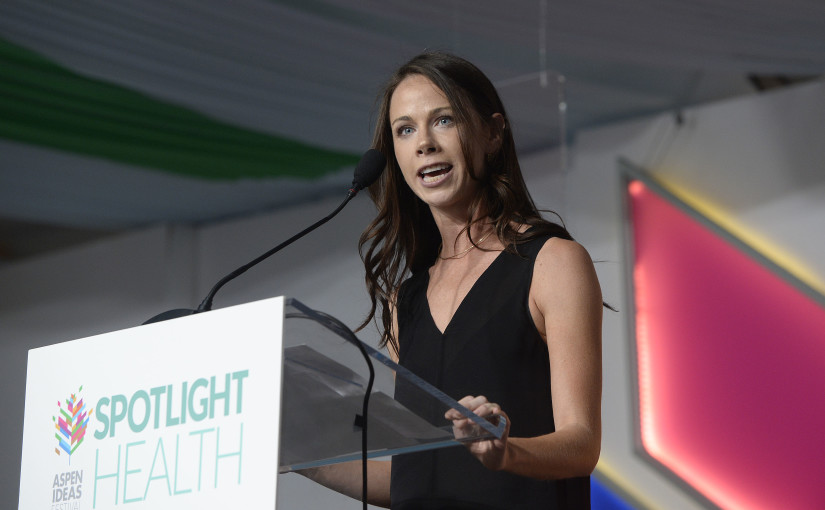We are pleased to welcome Barbara Pierce Bush, the CEO and co-founder of the Global Health Corps (GHC), a global leadership development organization focused on health equity, to Open Hands Initiative’s (OHI) Advisory Board.
Through GHC, Barbara has built a global community of nearly 600 young leaders, representing 30 countries and a wide range of expertise, to build the movement for health equity and tackle some of the world’s most pressing health issues. GHC’s work in cultivating a generation of young people open to building partnerships beyond political borders to work for a more just world speaks so saliently to our work.
Barbara’s extensive experience building partnerships between non-profit organizations and government agencies in East and Southern Africa and the United States, and fostering cross-cultural collaboration among young people will provide valuable insight on how OHI can better design its programs and cultivate more meaningful opportunities for cross-cultural engagement.
We recently sat down with Barbara to get her thoughts on cross-cultural collaboration and generating trust among people from different cultures.
OHI: What role does cross-cultural collaboration play in creating healthier and more just societies?
Barbara: As our world becomes exceedingly more connected, cross-cultural collaboration is critical to addressing global challenges like health equity. Our fellows always serve in teams of two—one fellow from the country in which the pair is placed, partnered with an international fellow. Collaboration is absolutely central to everything that we do, and is core to the impact that we’ve made. We believe that the next generation of global health leaders need to be able to expertly navigate diverse teams, have empathy for a range of view points and perspectives, and still be able to lead toward a common goal.
OHI: We know that trust is vital to creating a cohesive and vibrant community. How do you generate trust among individuals?
Barbara: The personal relationships that develop between our co-fellows, and amongst our country cohorts and entire classes of fellows – and actually throughout our generations of fellows – are hugely important. These trusting relationships provide a foundation for creative solutions and successful problem solving even when things get really challenging. We help to foster this trust by emphasizing relationship building as well as self-trust. A core component of our fellowship curriculum is designed to support interior formation, which emphasizes vulnerability, resilience, and self-reflection as leadership traits.
OHI: What advice can you give on expanding cultural and historical narratives to help facilitate greater understanding and respect among people?
Barbara: We have all of our fellows watch Nigerian writer Chimamanda Adichie’s TED talk, “The Danger of a Single Story.” When you’re working alongside people who’ve come from really different places and may hold totally different perspectives or ideas than you, it’s easy to “single story” them – or project onto them who you think they are. We talk a lot about undoing those narratives and the importance of building a tolerant, engaged community with a diversity of perspectives. The diversity of our community is its strength, in fact.
OHI: Promoting dialogue between people and countries is critical to building pathways of understanding. We know that for GHC, storytelling is an important aspect of leadership development. Why is storytelling, in particular, important to fostering understanding and developing leaders?
Barbara: The ability to inspire and mobilize others is one of our six core leadership practices. The global health challenges we are up against are huge and complicated. Unless we understand how to use our voices effectively, to convey the issues we see and to motivate and inform others toward the change we need, we are not going to see real progress. One of the most powerful tools each of us possesses is our voice. Over the course of the fellowship year, we work with our fellows to find and strengthen their voices through writing and public speaking in addition to story telling. We recently launched AMPLIFY, a publication on Medium, where our community often shares their stories.
OHI: One of the hallmarks of your GHC program is partnering with local institutions in East and Southern Africa and pairing American fellows with local African fellows. Has this helped to foster greater goodwill among the US and those countries in which you work? What effects has it had at the individual level between the fellows?
Barbara: We are so grateful to have strong partnerships in Malawi, Uganda, Rwanda, The U.S., and Zambia. Just as we have American fellows working in Zambia, though, we likewise have Malawian fellows working in the US. That cross-cultural collaboration is important and absolutely helps to foster greater empathy, stronger relationships, and good will across the board. We work closely with Ministries of Health and grassroots organizations, which not only provide incredible professional opportunities for our fellows but also builds our credibility as a talent pipeline for promising young leaders at a national level in every country where we work. To-date, our community is nearly 600 strong, and about to be more than 700 once we welcome our next class of fellows in a few months. Since our founding in 2009, we’ve been seeding incredible young leaders into the field of global health in the regions in which we work. We know that 97% of our alumni stay in the field, so we’re very excited and hopeful to see what the field looks like in another 10 years.
Learn more about our advisory board here.
